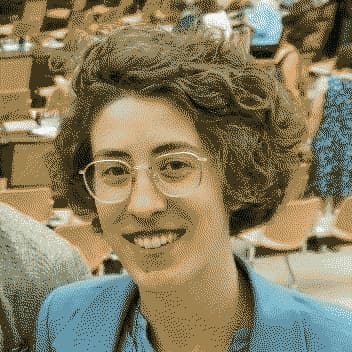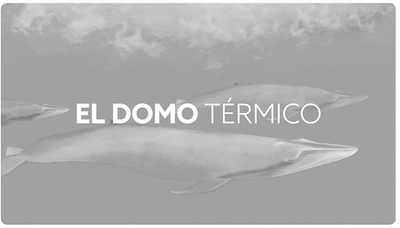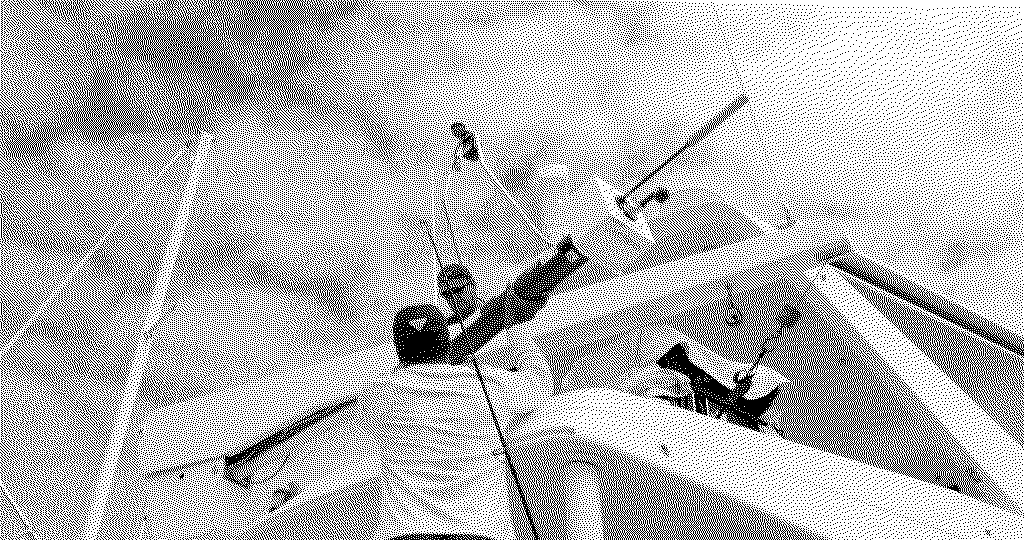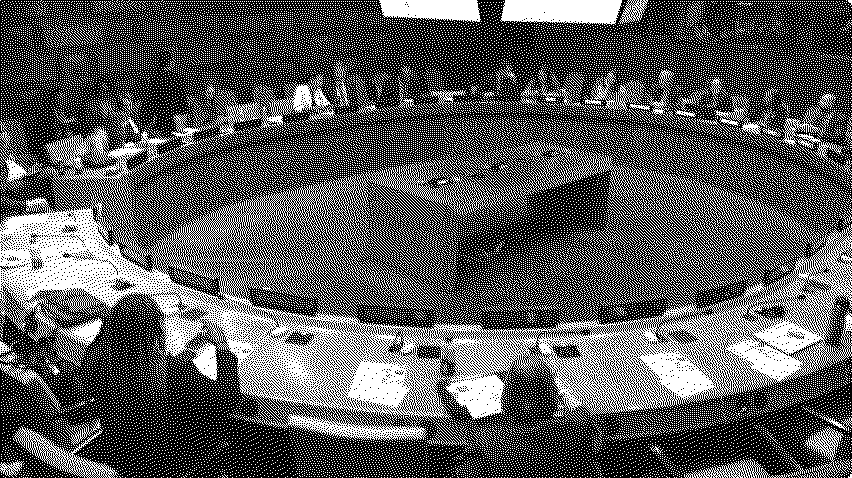DAY 5 of the Assembly — 28th July
This morning, ISA delegates are seemingly focused, tired, and ready to go back to their home countries.
But the agenda, after four days, has not been adopted yet.
Beginning the day with strong statements, the African Group looked to weigh on the negotiations and multiplied interventions in favor of deeper cooperation and separate the adoption of the provisional agenda and the agenda items to discuss the protection of the marine environment and the ISA reviewing process. This procedure would supposedly allow for an easier adoption of an agenda (and would allow to potentially get rid of such additions).
However, the group of countries supporting such additions to the agenda stood firm, believing in their legal rights. In response, one of the delegations supporting such a separation suggested this would be dangerous for the Authority’s framework and blame it on these States.
But such a blaming was not of the State’s liking and stronger grounds where then held, even reaching firm diplomatic positions. Nonetheless, at noon, no solutions were to be seen as the horizon to be found and the looming threat of no agenda appears to be closer and closer…
Update:
The decision on the agenda, after a week, has just been made, with 1 hour to go before the end of the Assembly: the periodic report (requested by Germany, article 154) has been placed on the agenda by the Assembly (article 10 c. of the Assembly’s rules of procedure) and the debate requested by France, Chile and Palau on the “General policy of the Authority for the protection and preservation of the marine environment” will be included on the agenda under article 10. e (proposal by an Assembly member) of the rules of procedure at the next Assembly, in 2024. A difficult consensus to reach.
***End of the Live***
DAY 3 of the Assembly — 26th July
Some Governemental representatives were present today at the ISA. Nauru’s President spoke first by defending Deep-Sea Mining (DSM) as a way to contribute to Nauru’s development, to fulfill the Common Heritage of Mankind UNCLOS principle, and to fuel the energetic transition. He said his country was “very disappointed” about what they depict as a non-compliance with the 2 year-rule. Following Nauru’s President, the Cook Islands Prime Minister also defended DSM, insisting on his Pacific Ocean perspective, as the latter is inseparable of their cultures and societies. He tried to twist the argument of indigenous and Pacific communities, which build their argument about opposing DSM arguing about their specific connection to the Ocean, and so for centuries.
Here, the Cook Islands PM referred to the “ancestors voyages” by canoe, and argued DSM was as “undertaking a voyage of discovery, that will take us beneath the ocean”. No doubt some observers, particularly from the Pacific, will make quite an opposite statement later in the Assembly.
Lastly, the French Sea Secretary of State reaffirmed the French position of a strict ban, describing France as an “Oceanic Nation”. He invoked the future generations, and the historical responsibility that weights over the Assembly during this week, to advocate for the marine environment protection, and the exploration prolongation, as a challenge for scientific knowledge and as a way to ensure the protection of the environment in the long-run. The Deep-Sea Bed should be protected as if they were “jewels”, he concluded.
General statements from State delegations went on afterwards, some delegations asking for the agenda to integrate a debate on the precautionary pause, or moratorium. One delegation implicitly said that it could ask for a vote if the Secretariat were not willing to accept this demand.
DAY 2 of the Assembly — 25th July
The Assembly is going on today, and the week agenda has not been adopted yet. Discussions continue though, with some comments on the Secretary General Report. A voice was raised that found “demoralizing” the critics against Deep-Sea Bed Mining in the general context of adopting a mining code. One delegation insisted on the necessity to articulate the various international agreements which could interact, warning about an OSPAR decision to extend one of its marine protected area to the Seabed (https://www.ospar.org/news/ospar2023) last June, and calling for more coordination between international regimes and particularly defending ISA’s position regarding the Seabed. While some delegations remind the working principles of ISA, common heritage of mankind, protection of the marine environment and adoption of regulations, rules of procedures for exploitation in the Area, others stressed the centrality of considering the knowledge gap and the need to protect an environment which is mostly unknown and yet to be discovered before exploitation could proceed. One delegation actually stated that it will oppose “any mining plan” in the current state of scientific knowledge, a position based on precautionary approach. BBNJ has been once again mentioned this morning. Discussions are to be continued, with an uncertainty about the possibility, requested by some delegations, to discuss the precautionary pause or moratorium during this Assembly session.
DAY 1 of the Assembly — 24th July
The ISA Assembly is slowly but surely filling up, and the Secretary General opens it by thanking the delegations in never seen before number, despite “this very hot month of July”. Many delegations are here for the first time, seeking to better understand the subject, weigh up the options before them and observe the dynamics at play.
Even so, the Assembly quorum is not reached yet: therefore, no votes could go through, and all decisions will have to be taken by consensus to avoid any deadlock.
And this Monday is hot indeed as two additions to the agenda proved contentious. First, the establishment of a “general policy related to the conservation of the marine environment” by Chile, Costa Rica, France, Palau, and Vanuatu. Second, Germany’s proposal for a “periodic review” which shall supposedly happen every 5 years.
Both aim at starting broad processes and include a large number of stakeholders on these two interlinked issues: how the ISA might best protect the marine environment and how to assess its work and operational functioning.
But a delegation was quick to stress its opposition to the inclusion of its new themes on the agenda. It was quickly another one who deemed it interesting but premature in the absence of thorough debates, including on the legitimacy of the Assembly to deal with it. Finally, a last one went a step further by putting it into question regarding its legality and the extent to which it could undermine the rights upheld by Nauru and its Canadian contractor according to the 2 year rule. In an attempt to shift the debate, its delegate stated that it would do so to support and continue the work under the leadership of the ISA’s Secretary General.
In order to forward the debates, the newly appointed Sierra Leone’s President of the Assembly proposed to convene a smaller bureau discussion at lunch. But in a will to fasten the debate, it was a bit hasty and nearly adopted decisions without acknowledging the requests to speak from numerous of delegations. Asking if it would be possible to have such conversations during lunchtime, consternation was seen in the room where a few delegates were shaking head vigorously, defending that such topics should be discussed in an open and a transparent setup.
In response to those questioning the legitimacy of the ISA, a delegation went back to the text of the Law of the Sea and reminded the room that the Assembly was entitled to propose general policy. Welcoming a debate and reminding that supplementary agenda items were adopted in former years, it reminded the importance of the sovereign rights of States to participate in multilateral institutions and to have a say in common heritage of humankind decisions. It was backed by other delegates, defending that a debate was crucial for “present and future generations”. Several delegates defended that the procedure was followed accordingly with the rules of the Authority; while others stressed the Assembly’s political role and the fact that it is the Authority’s supreme organ.
The President then stressed to a last delegate that he should be the “last speaker”. Most delegations abided to the President’s demand, but a will to stress one last time that “the Assembly was to assume and fulfil its international legal obligations” remained. If not the delegated expressed that not so would be “a very unfortunate signal to the world”.
Trying once more to push for external discussions and a closed meeting of the Bureau, the President reminded everyone that “no consensus was reached among delegations”. Nevertheless, a last delegation pointed out that the Agenda should be adopted as a whole, while the President decided to keep on and follow with the provisional agenda.
DAY 9 — 21st July
Informal groups, closed to observers, have worked all day long about the roadmap decision. In the afternoon, two groups met, one about the 2-year rule, another one about the roadmap. By 7pm, the parallel working groups came up with two texts in order to produce a Council decision. The diplomatic equilibrium is very delicate, as the roadmap text indicates that the Council “intends to continue the elaboration” of RRPs and “decides to assess” the “remaining work” at the end of July 2024. When the Council came back to plenary, some delegations insisted it was a package deal and had to be adopted, while others found it weakened the Council’s decision on the roadmap particularly.
On the one hand, the decision on a timeline evokes July 2024 as a date to assess the state of RRPs elaboration. On the other hand, the Council decides to reach an agreement on the 2-year rule, while reiterating the March decision, stating that “commercial exploitation of mineral resources in the Area should not be carried out in the absence of RRPs relating to exploitation”.
Both decisions embody “the possible scenario everybody can live with”, one delegation states. The adoption of such scenario might leave and important space for political stances and orientations during the Assembly next week.
Some NGOs stated these decisions “do not reflect the growing opposition to DSM”, as they particularly do not mention the knowledge gap as being a major problem regarding the exploitation of mineral resources in the Seabed. The Assembly, next week, might play a more important political role, as the consensus reached today cannot hide some profound contradictions between delegations.
DAY 8— 20th July
Discussions on regulations went on this morning. At the same time, parallel negotiations are going on about the roadmap and a timeline for the mining code first complete draft, which are closed to observers. Those could lead to tomorrow’s Council decision.
Earlier this morning, an NGO organized an happening on the road to the ISA, exhibiting a gigantic octopus to stress the important, for delegates to remember the importance of marine environmental protection.
As the discussions went on this morning, some delegations stressed the importance of regional environmental management plans as cross-cutting issues in the regulations. Work conditions on the vessels were also a matter of discussion today, as well as the obligation for the contractor to notify immediately in case of a “notifiable” event, with regard to security and environmental damages. Stricter obligations were defended by some delegations, due to the implications of article 145 of UNCLOS, aiming to “ensure effective protection of the marine environment”. One NGO delegation stressed that “the environment should be effectively protected without cost being a consideration”.
This morning, again, negotiations are driven by the inherent tension in UNCLOS between, on the one hand, environmental protection versus, on the other hand, economic exploitation regulations.
Last but not least, the importance of independent expertise and the central role of the Assembly for effective and legitimate ISA decisions were also stressed by some delegations.
DAY 7 — 19th July
A very interesting discussion took place this morning around stakeholder participation in the Plan of Work reviewing process by the Legal and Technical Commission (LTC). Some delegations supported “any” comments could actually be made, given that there was no instance to assess the relevancy of a contribution before it was submitted to the LTC. Most delegations considered that the LTC shall (and not may) take into account these comments in considering the Plan of Work. During the very same discussion, BBNJ and other already instituted International Organizations or UN institutions came up, as one proposal stated that the LTC shall also consider “any advice or reports received form any competent organ of the UN (…) or any international organizations with competence in the subject-matter”, echoing article 163 §13 of the UNCLOS. Even though OSPAR was cited as an example by one delegation, it was clear BBNJ was in every mind. While some delegations insisted that the ISA was actually the only competent organ in the “subject-matter”, related to the Area, as its mandate was an “exclusive” one. Though, other delegations stressed it was central to allow BBNJ, and other international organisations, to make such recommendations or reports, suggesting this proposal could be rephrased depicting these organizations as “[relevant] to the subject-matter”, so to reach a consensus. NGO’s supported these views, both on the obligation of taking into account those comments and reports, as well as for the widest possible public participation, including BBNJ which was described as relevant to the work of ISA by another State delegation.
DAY 6 — 18th July
Discussions at the ISA this morning are still based on institutional matters. An interesting part stresses the importance of coordination between different international organizations or treaty regimes. Once again, it seems that the BBNJ Treaty conclusion irrupted again in the negotiations. Indeed, many delegations mentioned their preoccupation to integrate environmental limits and to better coordinate the international dispositions (for example, Marine Protected Areas from the future BBNJ treaty or Ecologically and Biologically Significant Areas from the last CBD agreements). As one delegate stated, there still is “too little coordination in these processes although they actually affect each other”. Though there were a general agreement on this necessity, delegations considered the obligation to assess the legal status of an area regarding other regimes belongs to States, and not to the applicants. Other delegations stressed that the other international institutions had priorly to consider what was happening under the ISA regime. Rephrasing is likely to happen so as to integrate this coordination imperative.
DAY 5 — 17th July
Some NGOs rose the issue of the compliance process, which they consider is not specified nor clearly established by the report (“what if the contractor does not pay? What if the contractor wishes to appeal? Who decides? What is the process then?”). They recalled State delegates of the NORI spillover event which occurred during a mining test and was notified late to the Secretariat.
Other observers found references to the International Seabed Authority’s DeepData Base program in the Secretariat General’s report. Launched in 2019 to answer its Law of the Sea’s legal obligations related to marine scientific research, it was welcomed. However, note was made that the platform still lacks the prerequisites to make it usable for management and policy decision-making.
DAY 4 — 14th July
Now, negotiations have moved to inspection, compliance and enforcement. The first and major element in this debate is related to the committee status, regarding its independence towards the Legal and Technical Commission (LTC). Some delegations prefer a full independence of the compliance committee, that would coordinate inspecting activities of Deep-Sea Mining, while others would prefer to place this committee under the authority of the LTC. In line with these positions, delegations rather keen to grant independence to the Compliance Committee also want to strengthen its positions and powers, while others want to limit them. As discussing these regulations, threshold matters are coming back, as some delegations defend the Inspector should instruct the contract if a “serious harm” threat is risen by the contractor’s activities. It triggers reactions from other delegations which prefer “harm” threat as a threshold, arguing for the consistency with UNCLOS (art. 145).
Update:
22 countries have joined the call for a pause on Deep-Sea Mining, some of them did it publicly on this Friday afternoon in Jamaica. The precautionary approach and the knowledge gap about Seabed biodiversity, as well as synergetic effects, are the very basis of this call. While some delegations wish to grant provisory exploitation contracts, this position appears to be a minority. Most interventions are calling for going on with the work on robust and solid Rules and Regulations Procedures (RRP) to operationalize the Convention through finalizing the regulations. NGO’s interventions stress the necessity for the Council to handle the decision and not authorize the LTC to make a recommendation about one exploitation plan of work. These positions were based on the very same grounds as the moratorium, which are the necessity for more scientific knowledge and the crucial dimension of environmental protection. Those debates are going to be quite intense next week.
DAY 4 — 13th July
This morning, a very interesting debate that began yesterday about environmental issues. Many delegations made a plea to integrate an explicit reference to “synergistic effects” in the ISA regulations. Indeed, synergistic effects are not reduced to the sum of individual effects, but point to processes that overwhelm the original sum of effects. These effects are, for example, well-documented by climate sciences, as climate feedback loops. Some delegations are more skeptical about the integration of “synergistic effects”. Some NGO’s interventions were made to clarify the distinction between synergestic effects and cumulative effects, the latter being the sum of individual effects. One NGO delegation reminds the importance to consider the knowledge gap, and the tension which rises between this gap and the prospect to exploit seabed minerals. Some delegations supported this statement, particularly one defending that “non-exploitation” should be the norm and not the exception.
DAY 3 — 12th July
Environmental Matters – The BBNJ agreement makes quite an irruption this morning in ISA negotiations. Some delegations defend an explicit reference to this agreement, arguing the ISA regulations might enter into force suite simultaneously as the BBNJ agreement, while others find it “hasty” to mention the agreement before even knowing which countries decide to sign. The debate about referring to BBNJ crystallizes in the precautionary approach vs. precautionary principle discussion. As this discussion already took place in New-York negotiations, BBNJ mentions in its “general principles and approaches” (Art. 7), “the precautionary principle or precautionary approach, as appropriate”. Some delegations consider this formulation as a clear proof consensus was already missing on the matter, while others argue the “precautionary principle” inclusion in BBNJ provides a legal basis and political argument for its inclusion in ISA regulations.
DAY 2 of the Council — 11th July
International Seabed’s Authority negotiations are on. Diplomats have just started negotiating and the menu is vast and rich. Discussions started the day after the end of “2-year rule”, allowing contractors to submit applications for exploitation.
According to the Secretariat, the goal is still to achieve a Mining Code enabling the extraction of seabed minerals in July. However, no attendees seem to share the Secretariat’s hopes.
The discussions on the financial terms of the contracts have even led to an optimistic announcement: some hoped to see the draft process completed by the end of the year although assuming this might nothing but a “dream”.
The fact is that discussions of financial incentives for deep-sea mining, financial payment system options or even how to weigh the minerals still lack consensus.
The complexity of the process was well resumed as five different groups are actually working in parallel and, according to a chairperson: “it’s impossible for any of us, I think, to have a full overview of how this will look when we put the different drafts together”.
Still, a lot remains on the negotiations’ shopping list: tackling environmental uncertainties, agree on equity mechanisms, debate on how to better govern the deep oceans…’
About the authors

Cadalen

Majoring In International Relations
University of Brest, Joint Research Unit AMURE, joining the ISA meeting with DOSI
Pires da Cruz

University of Bordeaux, Joint Research Unit Centre Émile Durkheim, joining the ISA meeting with DOSI



